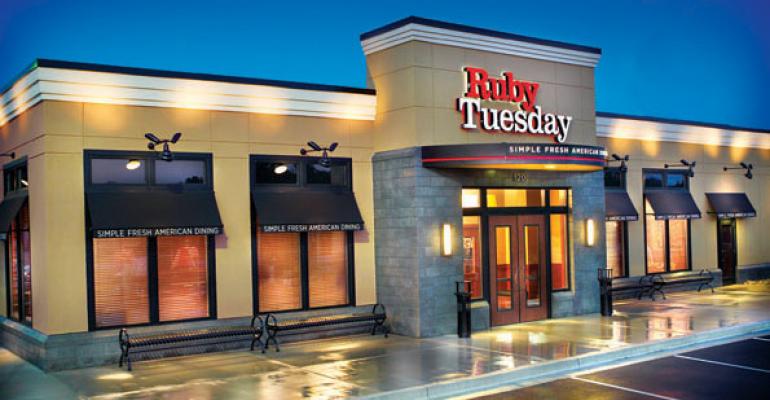Class-action lawsuits over “side work” by restaurant employees who get tip-credit pay show signs of increasing, one industry legal expert says.
This week, a server at a Ruby Tuesday restaurant in Hixson, Tenn., filed a class-action lawsuit in U.S. District Court in Chattanooga, claiming that the chain underpaid its servers and bartenders for "side work" such as cutting lemons, filling ice bins and rolling silverware.
Maryville, Tenn.-based Ruby Tuesday said in a statement to Nation’s Restaurant News Friday: "While we cannot comment on pending litigation, we are committed to our Ruby Tuesday team members, and we will be providing a vigorous defense of the company on this matter in the appropriate forum.”
The server, Charlene Craig, said she was required to do the side work, but was paid only the tip-credit wage of $2.13 an hour. Federal regulations say servers and bartenders can spend up to 20 percent of their time doing non-tipped side work, but must be paid at least $7.25 per hour after that, said lawyer Chris Hall of Hall & Lampros LLP in Atlanta, which has set up a website for the Ruby Tuesday case.
"She's doing a whole lot of side work," Hall told the Chattanooga Times Free Press. "It's over 20 percent."
Lawsuits over side work appear to be increasing as some states, such as New York this year, modify the tip-credit pay rules.
“We have seen an increase in these,” said Roy P. Salins, a New York-based partner in the employment-services group with Davis Wright Tremaine LLP and a member of the hospitality-industry practice, in an interview Friday. “There is a lot more scrutiny on restaurants that are taking the tip credit that may have been lost in the past.”
Some states, such as New York, have more restrictions on side work than the Federal Labor Standard Act’s limit of 20 percent of a shift, Salins said.
“In New York, if the side work — or the non-tipped work — is two hours or more, or more than 20 percent of the shift, then the employer can’t take a tip credit for the whole day,” he explained, which goes further than the FLSA.
“The problem for restaurants is that it can come down to a ‘he-said-she-said’ in a credibility determination as to whether the person is engaging in — in New York — two hours or more of non-tipped work, or, under the FLSA, 20 percent or more,” Salins said.
FLSA regulations say non-tipped work includes cleaning and setting tables, toasting bread, making coffee and washing dishes.
“If you include prep work before service starts, it can get to 20 percent or two hours fairly quickly,” Salins said.
“Restaurants have to be vigilant with respect to their scheduling to make sure … tipped employees that the restaurant is taking a tip credit on are not engaging in too much prep work before service starts,” he said.
Other restaurant brands have faced side-work class action lawsuits in the past, including Darden Restaurants Inc. and Applebee’s Neighborhood Grill & Bar.
âOne thing that restaurant operators can do, Salins said, is “review the schedules and review the tasks that their tipped employees are performing to ensure that they are not performing a significant amount of prep work and ensure the managers are having the employees follow the rules.”
“You can have all the rules in the world,” he explained, “but if the managers on the site aren’t enforcing those rules, you can run into the same kinds of issues.”
As of December, Ruby Tuesday had 733 restaurants in 44 states and 12 countries, as well as Guam. The company also had 16 Lime Fresh restaurants in two states.
Contact Ron Ruggless at [email protected]
Follow him on Twitter: @RonRuggless





